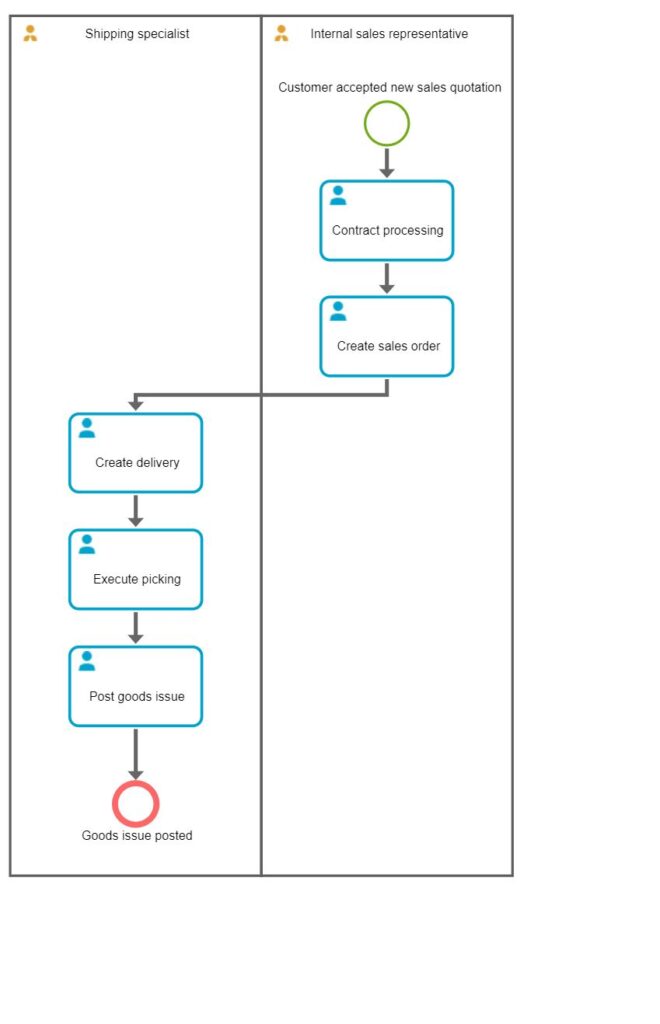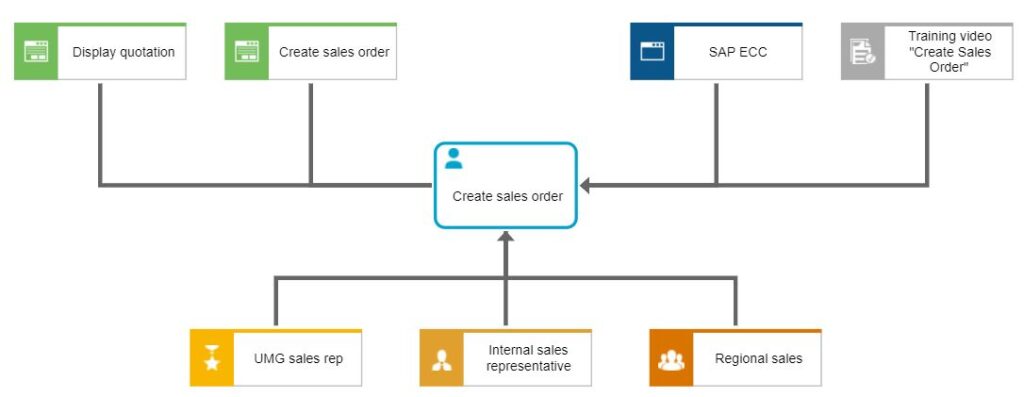ARIS for SAP® Solutions
General information
ARIS for SAP Solutions offers a complete solution for the implementation of SAP projects.
Customers use it to blueprint SAP processes and transfer them directly to SAP Solution Manager using a bidirectional interface.
Customers can jumpstart blueprinting by importing best-practice content or discovered processes from their current SAP landscape.
Testing, training, rollout and process mining add value to best support the entire SAP solutions lifecycle.
SAP® blueprint structure
The process structure represents the blueprint’s core: folders, scenarios, and processes. At the lowest level, process steps define the business structure and the process flow—either as an Event-driven Process Chain (EPC) or as Business Process Modeling and Notation (BPMN). This structure in ARIS is mapped to SAP Solution Manager with the help of SAP model type attributes. The mapping process is supported by SAP modeling wizards.

All process steps are organized in the Process Step Library (PSL).
Each process step must refer to a master step in the PSL (n:1 relationship). This is conveniently guaranteed by using the SAP modeling wizards in ARIS.
PSL items may contain nonstructural elements, such as documents and test cases.
Folder level (for example, Value-added Chain Diagram)

Scenario level (for example, Value-added Chain Diagram)

Process level (for example, E-Business Process Model Notation)

Nonstructural elements (in FADs)
To detail the business blueprint, customers add nonstructural elements, so-called satellites, such as data, risks, resources, or organizational elements. Modeled in a Function allocation diagram (FAD), these satellites reduce the visual complexity of the process models.

Process step level (Function allocation diagram)



1. Discover
- Discovery of actual process execution and system usage·
- Redocumentation of reality and revealing process variants and work arounds with Process Mining·
- Gain transparency on strategic migration goals
2. Prepare
- Jump-start with reference content
- Design of SAP-compliant end-to-end to-be processes
- Link SAP functions to various artifacts like executables (transactions, Fiori apps), end user roles, or documents
- Synchronization with SAP Solution Manager
- Support of S/4HANA® migrations
3. Explore
- Impact analysis of to-be-processes
- Governance of process approvals
- Define requirements and learning plans based on fit-gap-analyses
- Obtain process approval from LoB
- Agile management of to-be design requirements with ARIS and SAP ChaRM
4. Realize
- Process-oriented SAP test management
- Test path capturing
- Integration with SAP® Test Suite
- End user-friendly and process-oriented training
- Integration with SAP Enable Now
5. Deploy
- Company-wide communication of implemented processes
- ARIS as a single source of truth
- Daily and process-driven support of end users
- Collaborative process improvement
- Start executables (for example, Fiori Apps) from ARIS or open the ARIS process guide
6. Run
- Gather feedback and requirements from LoB
- Improve your SAP solution based on process mining insights
- Measure as you run, discover process variants and analyze process complianc
